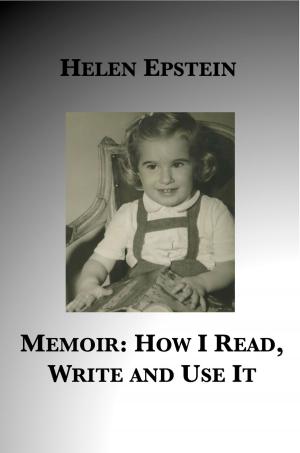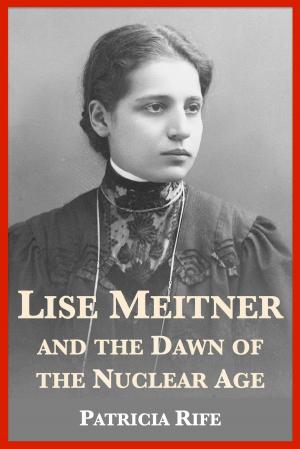| Author: | Robert S. Wistrich | ISBN: | 1230001133806 |
| Publisher: | Plunkett Lake Press | Publication: | May 16, 2016 |
| Imprint: | Language: | English |
| Author: | Robert S. Wistrich |
| ISBN: | 1230001133806 |
| Publisher: | Plunkett Lake Press |
| Publication: | May 16, 2016 |
| Imprint: | |
| Language: | English |
“Robert Wistrich’s exemplary scholarly analysis of the Viennese Jewish community in the 19th century is the first well-written, reliable study of its kind... gives elegant portraits of the crucial Jewish figures of the new Viennese politics at the turn of the century... focus[es] on the internal history of the highly diversified Jewish community... [Wistrich] analyzes effectively the genesis of Herzl’s Zionism from within the Viennese context. Although his sympathies for Zionism are clear, he is respectful of Jewish critics of Zionism. What is refreshing in his narrative is the absence of retrospective critical moralizing about assimilation and the remarkable participation of Jews in German culture. Assimilated Jewish aristocrats and intellectuals, even Jews who converted to Christianity, are presented with as much evenhandedness as those Viennese Jewish nationalists and traditionalist theologians whose mistrust of assimilation and acculturation as reliable defenses against prejudice seems to have been vindicated by the Holocaust.
The Jews of Vienna in the Age of Franz Joseph is not merely a descriptive history of Viennese Jewry. It vindicates the centrality of Jewishness and anti-Semitism as dynamic and changing forces in the evolution of 19th-century Austro-German politics and culture... Mr. Wistrich’s poignant narrative reminds us that the struggle for civic equality, social acceptance and economic security by the Jews of 19th-century Vienna resulted, among other things, in a steady stream of diverse and unforgettable contributions to art, science and culture... Even if the hopes implicit in the political and social struggle of the Jews of Vienna before 1914 were dashed finally by the violence of Nazism, Mr. Wistrich’s book is a moving reminder of what high hopes they were.” — Leon Botstein, ***The New York Times Book Review***
“The excellence of his book lies... in the high quality of scholarship, the sensitivity to nuance, the desire to map the entire Jewish response to the crisis of the empire in all its complexity.” — Michael Ignatieff, ***New York Review of Books***
“Will be the standard work for some time to come... eminently readable.” — Peter Pulzer, ***London Review of Books***
“[A] monumental book which will be indispensible for a long time to come.” — Ritchie Robertson, ***German History***
“Wistrich draws all the strands of this complex story very clearly together... broadly conceived, his book has a compelling dramatic interest and is certain to remain a standard guide to its subject for a long time.” — Roger Morgan, ***Times Literary Supplement***
“A paradigm of fine Jewish historical writing and analysis... Wistrich builds his work by exhaustively treating the important trends and figures which Viennese Jewry produced.” — Sharon Fleisher, ***Jerusalem Post***
“... a veritable summa of the religious, cultural, and political history in which the Viennese Jews were the main agents of change during the decline of the Habsburg monarchy.” — Victor Karady, ***Liber***
“Robert Wistrich’s exemplary scholarly analysis of the Viennese Jewish community in the 19th century is the first well-written, reliable study of its kind... gives elegant portraits of the crucial Jewish figures of the new Viennese politics at the turn of the century... focus[es] on the internal history of the highly diversified Jewish community... [Wistrich] analyzes effectively the genesis of Herzl’s Zionism from within the Viennese context. Although his sympathies for Zionism are clear, he is respectful of Jewish critics of Zionism. What is refreshing in his narrative is the absence of retrospective critical moralizing about assimilation and the remarkable participation of Jews in German culture. Assimilated Jewish aristocrats and intellectuals, even Jews who converted to Christianity, are presented with as much evenhandedness as those Viennese Jewish nationalists and traditionalist theologians whose mistrust of assimilation and acculturation as reliable defenses against prejudice seems to have been vindicated by the Holocaust.
The Jews of Vienna in the Age of Franz Joseph is not merely a descriptive history of Viennese Jewry. It vindicates the centrality of Jewishness and anti-Semitism as dynamic and changing forces in the evolution of 19th-century Austro-German politics and culture... Mr. Wistrich’s poignant narrative reminds us that the struggle for civic equality, social acceptance and economic security by the Jews of 19th-century Vienna resulted, among other things, in a steady stream of diverse and unforgettable contributions to art, science and culture... Even if the hopes implicit in the political and social struggle of the Jews of Vienna before 1914 were dashed finally by the violence of Nazism, Mr. Wistrich’s book is a moving reminder of what high hopes they were.” — Leon Botstein, ***The New York Times Book Review***
“The excellence of his book lies... in the high quality of scholarship, the sensitivity to nuance, the desire to map the entire Jewish response to the crisis of the empire in all its complexity.” — Michael Ignatieff, ***New York Review of Books***
“Will be the standard work for some time to come... eminently readable.” — Peter Pulzer, ***London Review of Books***
“[A] monumental book which will be indispensible for a long time to come.” — Ritchie Robertson, ***German History***
“Wistrich draws all the strands of this complex story very clearly together... broadly conceived, his book has a compelling dramatic interest and is certain to remain a standard guide to its subject for a long time.” — Roger Morgan, ***Times Literary Supplement***
“A paradigm of fine Jewish historical writing and analysis... Wistrich builds his work by exhaustively treating the important trends and figures which Viennese Jewry produced.” — Sharon Fleisher, ***Jerusalem Post***
“... a veritable summa of the religious, cultural, and political history in which the Viennese Jews were the main agents of change during the decline of the Habsburg monarchy.” — Victor Karady, ***Liber***















